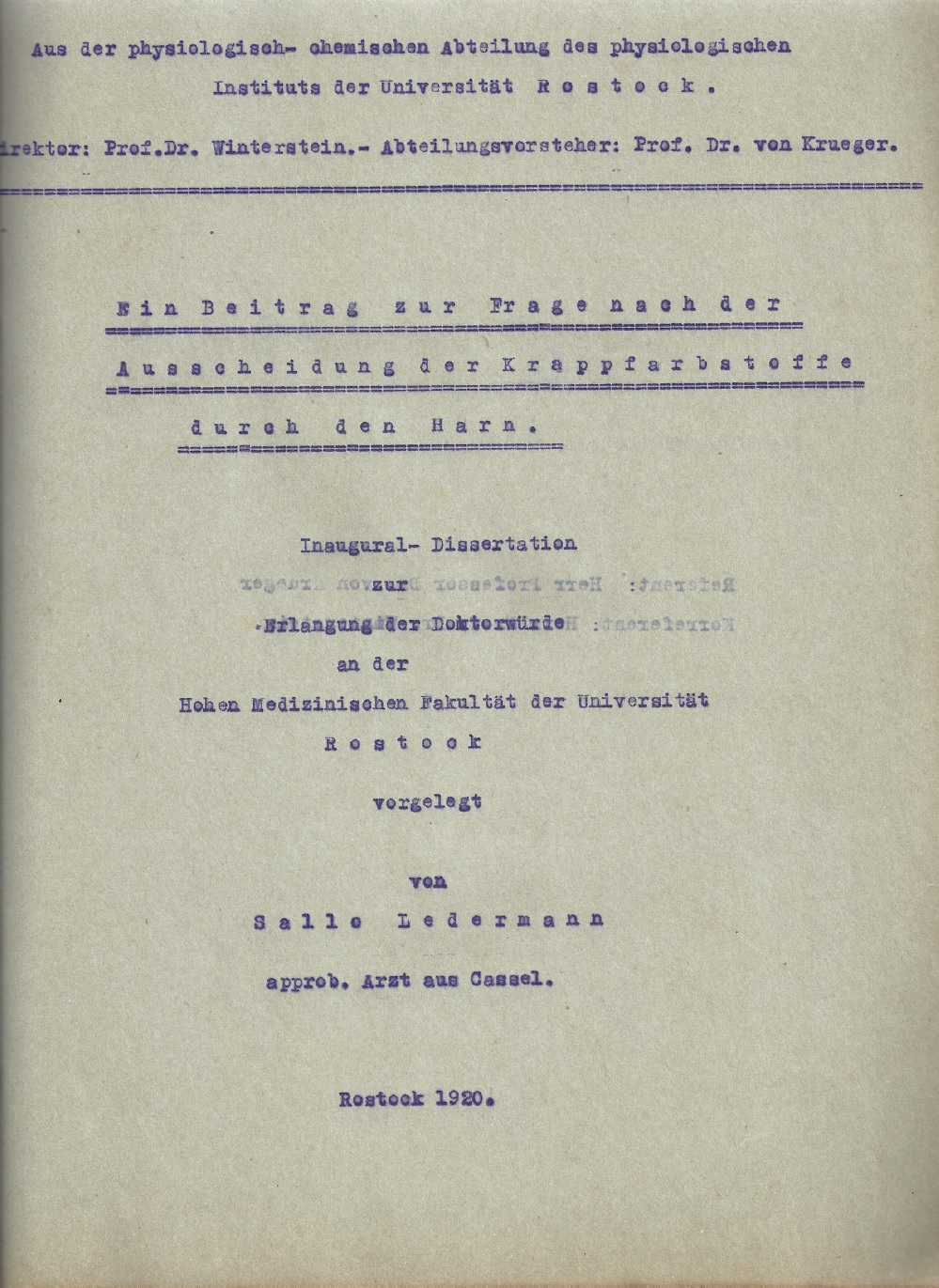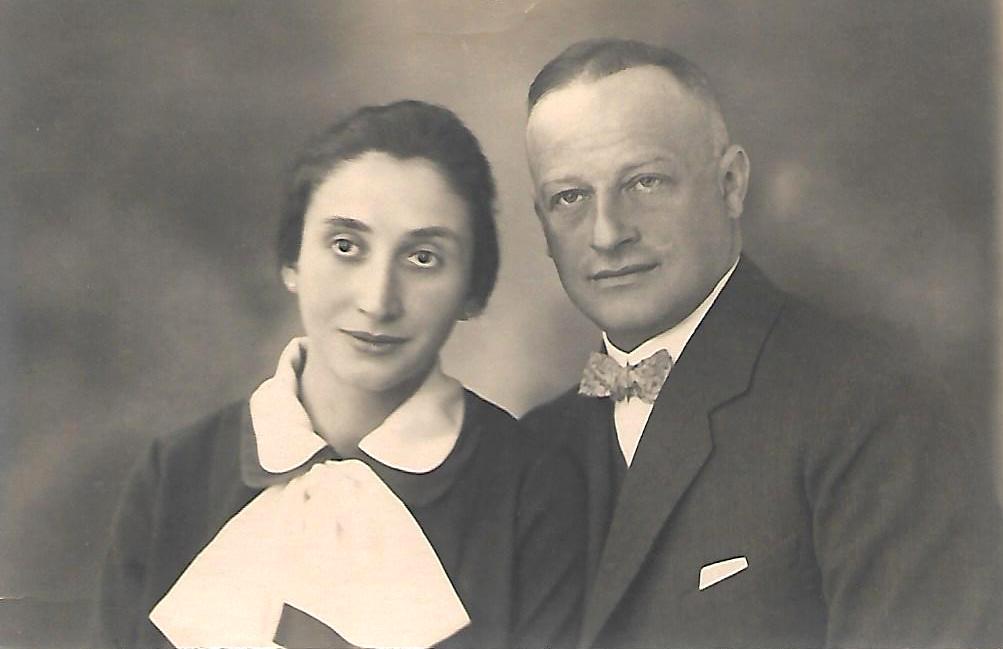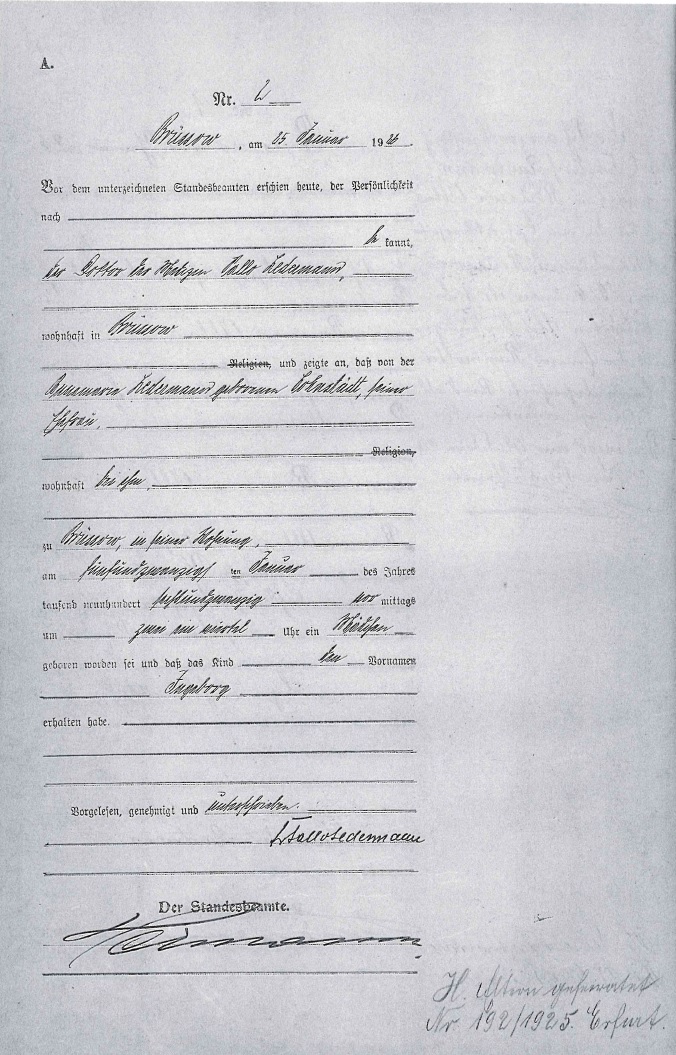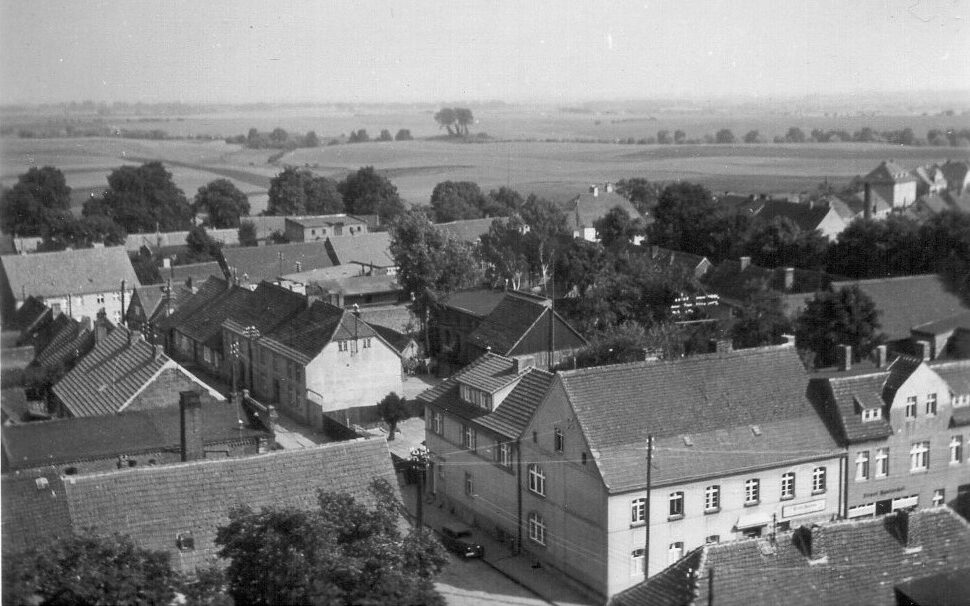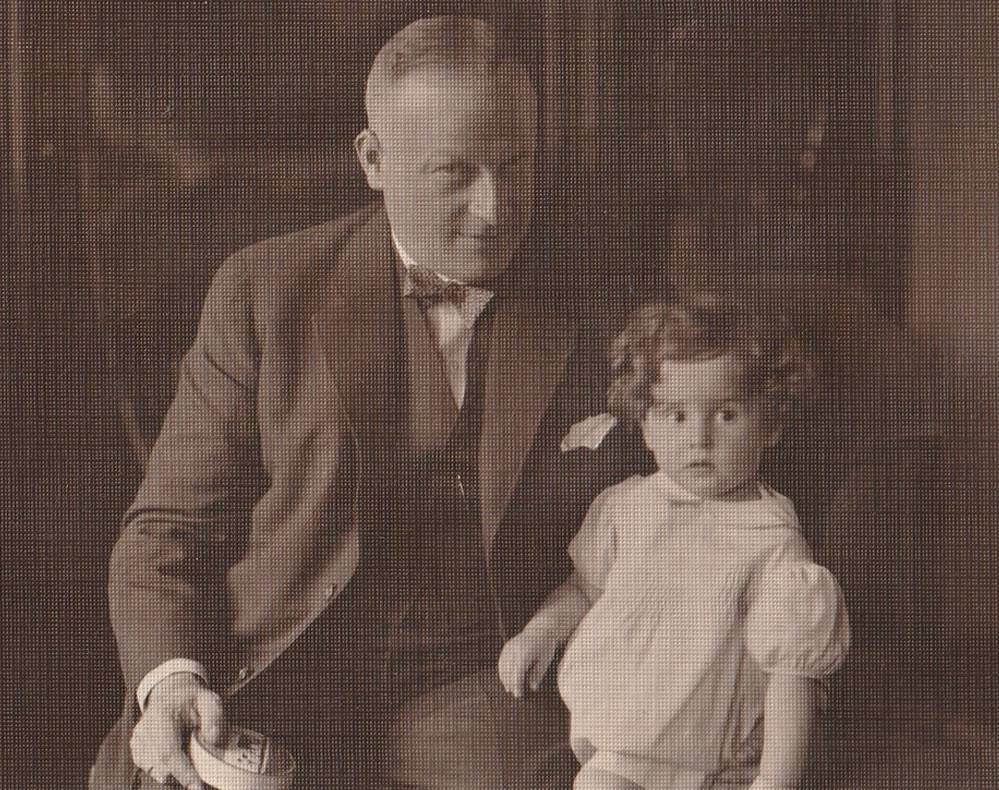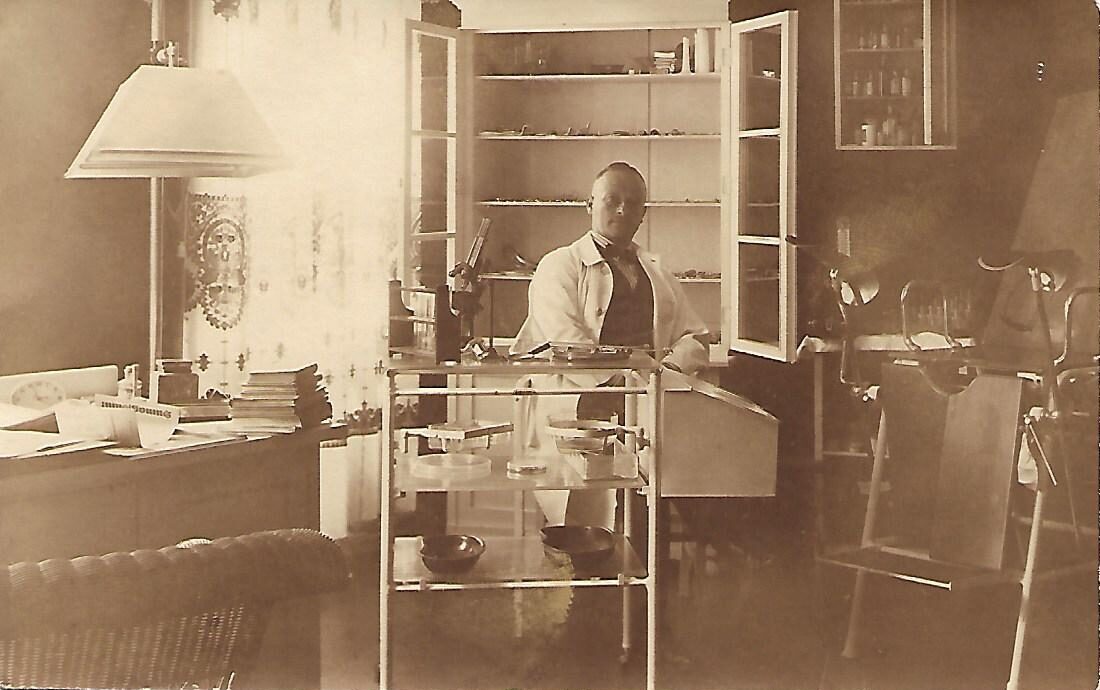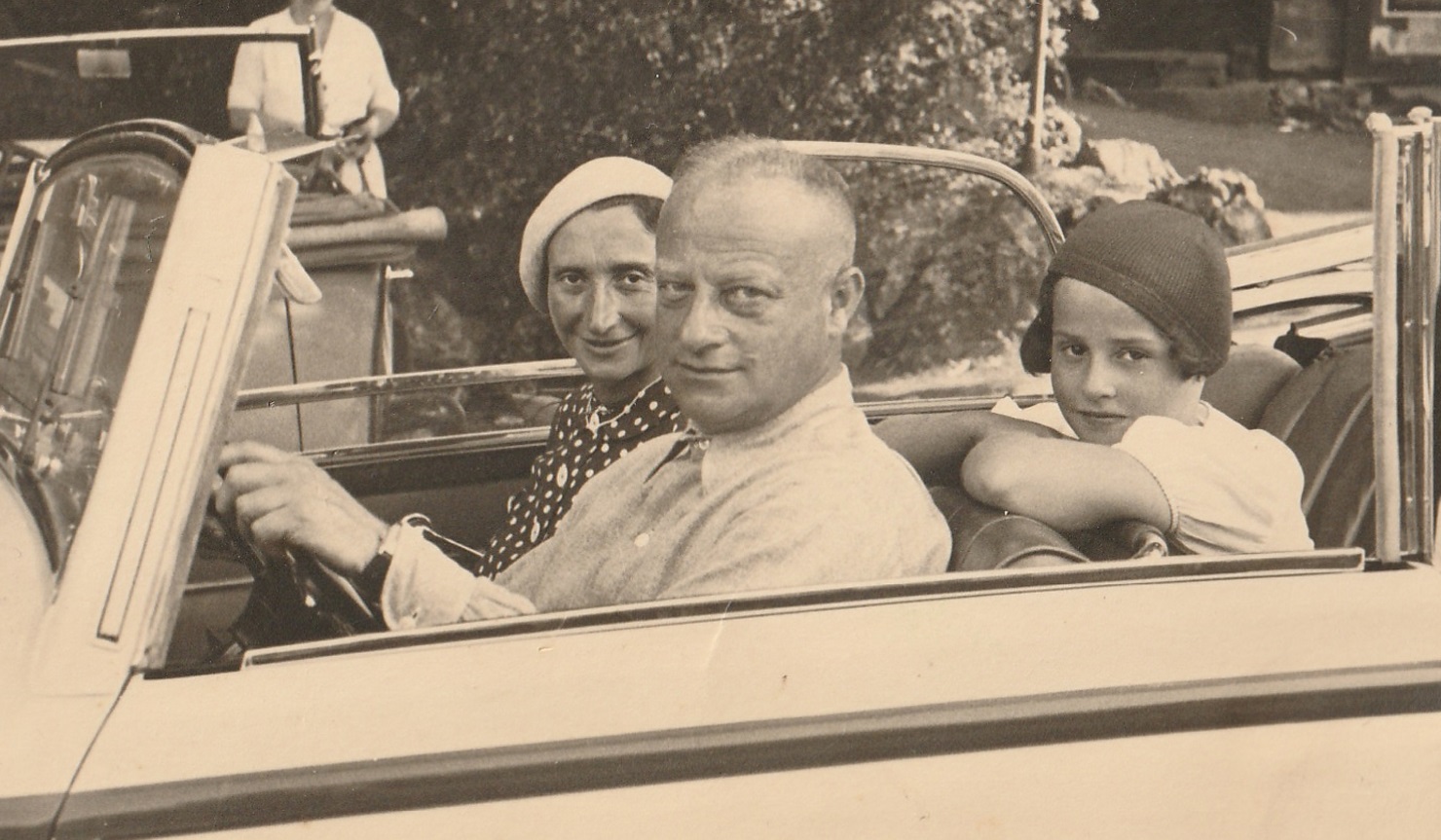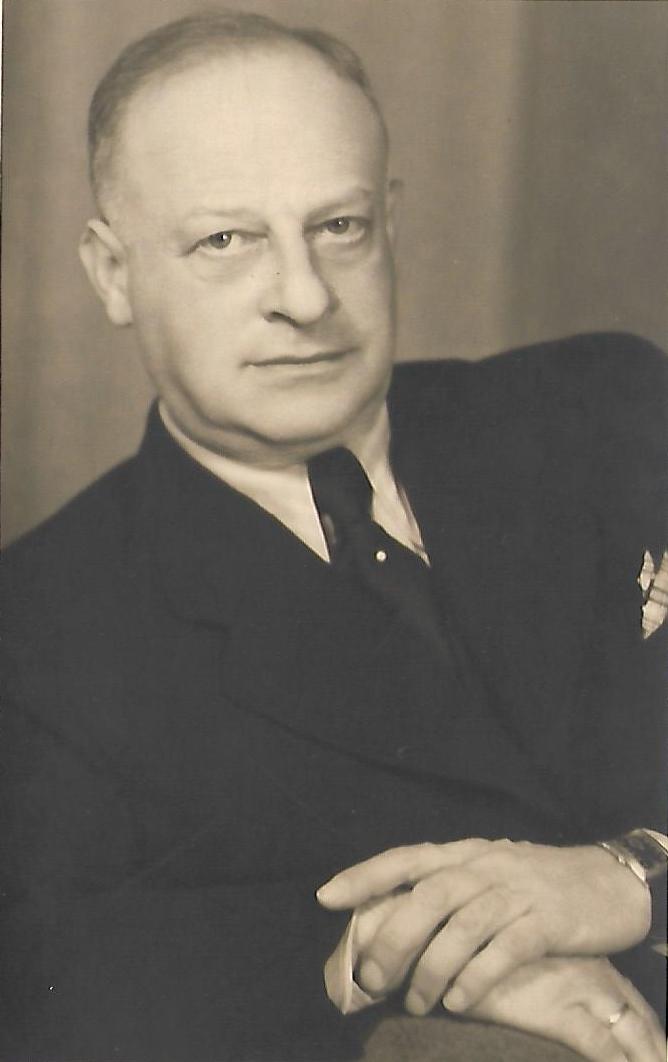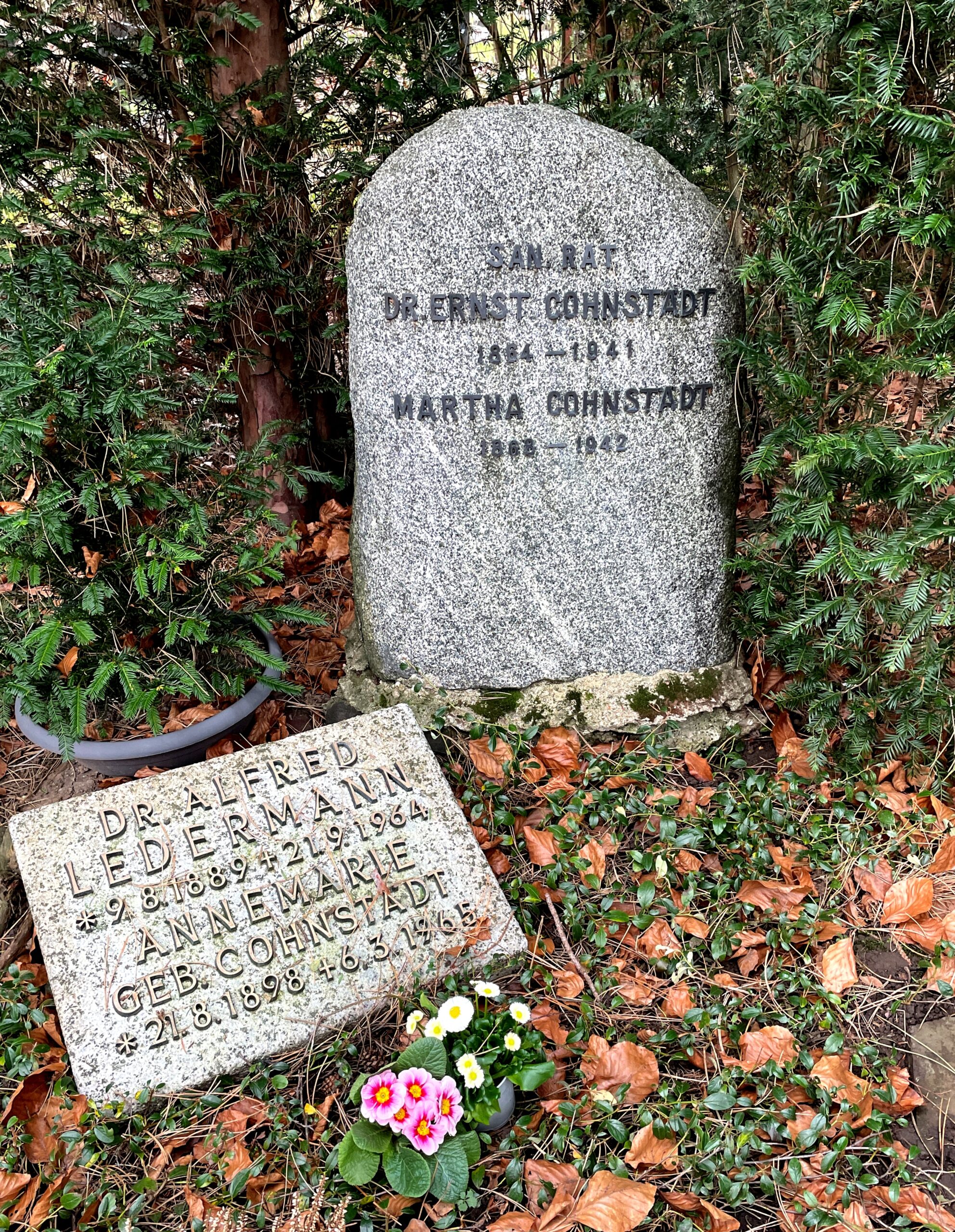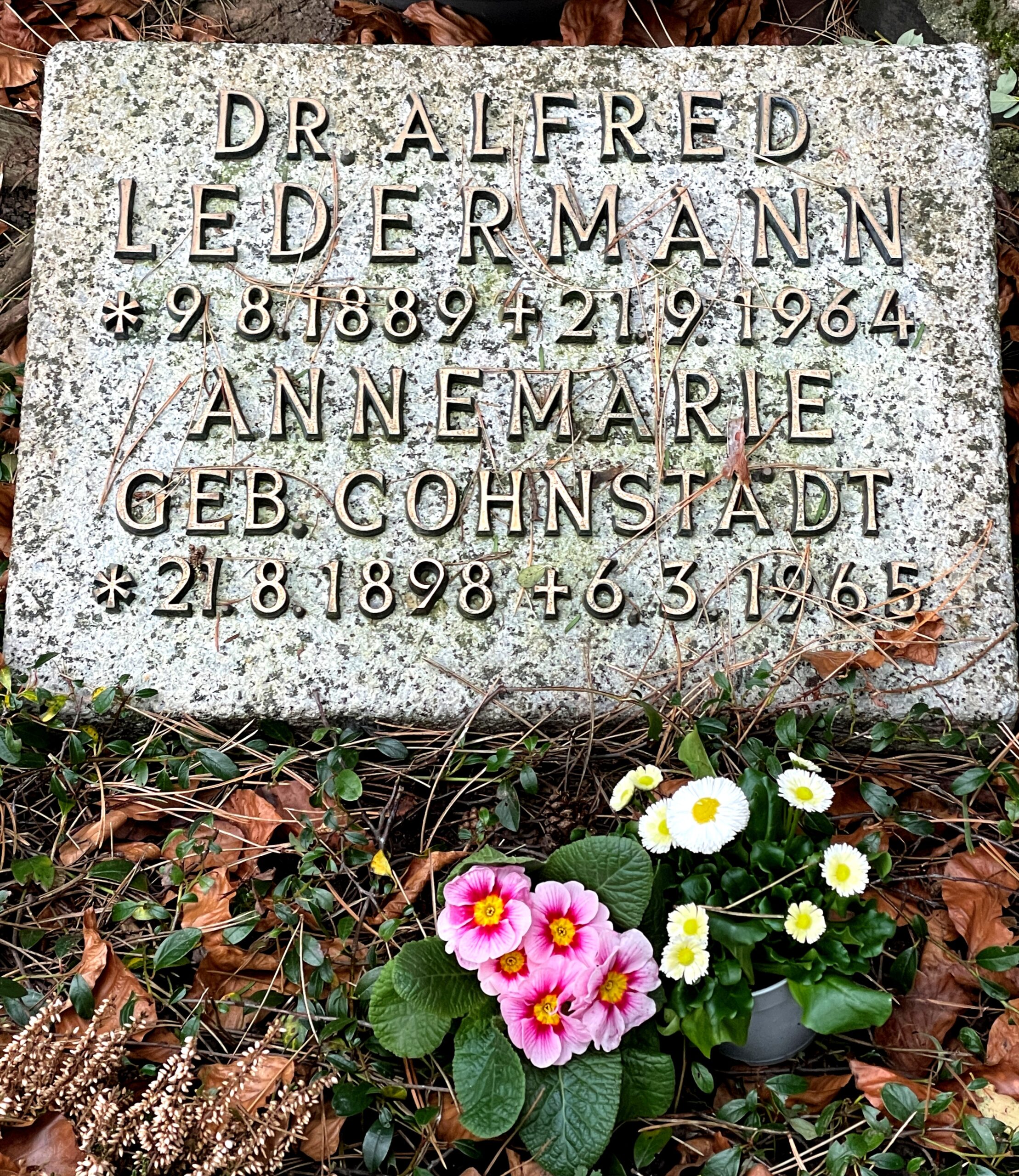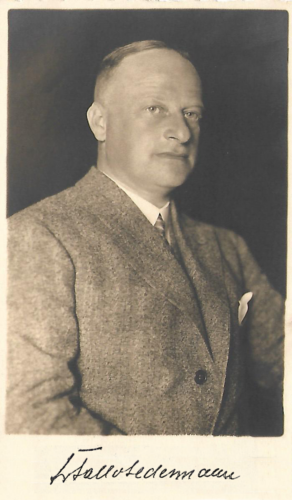Dr. med. Alfred Sallo (Salomon) Ledermann
- Kassel, Germany, 09.08.1889
- Salisbury, Maryland, USA, 21.09.1964
- Member since 1931
- Escaped to the USA in 1938
- Köln
- Specialist in gastrointestinal and metabolic diseases
Younger Years
The Ledermann family originally came from Heidelsheim in northern Baden, a district of Bruchsal with a flourishing Jewish religious community. In Kassel, where Dr. Ledermann was born, the family lived at Spohrstrasse 91/2.
The following are Dr. Ledermann’s words, taken from the curriculum vitae he submitted with his dissertation:
“I was born in Kassel on August 9, 1889, the son of the merchant Louis Ledermann and his late wife Jenny, née Biermann. I attended the Realgymnasium [became the Albert Schweitzer School in 1956 (see note H Je)] in my hometown and graduated from the same in October 1907. From October 1, 1913 to April 1, 1914, I fulfilled my active military duty with the Grosshzgl. Leibgarde Infantry Regiment 115 at Darmstadt. My duties throughout the war were with the medical service. I would go on to study medicine at the universities of Munich, Würzburg, Göttingen, Berlin, Giessen and Rostock, where I passed the preliminary medical examination at the end of the summer semester 1917. I completed my internship year in 1920 and passed the medical state examination, also before the board at Rostock, on June 14, 1920, receiving my license to practice medicine on June 24 of that year.”
Standing out in Dr. Ledermann’s C.V. up to 1920 is the delay in his medical studies due to military service and the First World War.
Education and Employment
On July 23, 1920, Ledermann received his doctorate from the University of Rostock. He wrote his thesis under Friedrich Karl von Krüger for the Department of Physiology and Chemistry at the university’s Institute of Physiology, titling it “A Contribution to the Question of Madder Dye Excretion Through the Urine” (“Ein Beitrag zur Frage nach der Ausscheidung der Krappfarbstoffe durch den Harn”)
We do not know where Dr. Ledermann completed his first residencies, but we do know that from 1925, he lived and worked as a general practitioner at Stettiner Str. 37 in Brüssow in the district of Prenzlau, Brandenburg. In March 1925, he married Annemarie Cohnstädt from Erfurt, a doctor’s daughter who brought with her two sons into the marriage. A daughter was born in January 1926, Ingeborg Martha (Inge).
From Brüssow, Ledermann moved to the Medical University Clinic in Cologne to work under the then well-known internist Friedrich Moritz. There he completed another residency and achieved further specialization, setting him up to run a highly successful practice as a resident specialist in gastrointestinal and metabolic disorders. He did so from January 4, 1931 in Cologne at Hohenzollernring 11. In 1934, the Ledermann family moved in with the Cohnstädt parents-in-law at Wildenburgstraße 1 in Cologne-Lindenthal.
Flight to the USA in 1938
Not long after the National Socialists came to power in 1933, Ledermann was subjected to the anti-Jewish measures of the new rulers. In spring of 1933, he lost his license to practice in Kassel. On September 30, 1938, the Nazi authorities revoked his license to practice medicine. Forced to abandon his practice, Ledermann lost his livelihood. On November 2, 1938, one week before the “Reichskristallnacht,” Alfred S. Ledermann managed to escape from Germany with his wife Annemarie and their 12-year-old daughter Inge. Leaving Hamburg on the S.S. Washington, the family reached New York on November 10, 1938. They had to leave their two sons behind in Cologne, as well as their Jewish parents-in-law. Only the younger son would survive the war to be later reunited with the Ledermann family.
After taking language courses and passing the state medical board examination, Ledermann, at 49, was able to practice medicine but with certain limits dictated by conditions in the US at the time. This meant he had to give up his previous practice of gastroenterological internal medicine. He switched to psychiatry, and for the first ten years after his family’s flight from Germany, he practiced in Baltimore, Maryland. From 1939-40, he was on the Visiting Staff at the Seton Psychiatric Institute, a hospital in Baltimore City. He then went on to work in the Department of Psychiatry of the Veterans Administration, also in Baltimore.
Owing to an illness that befell his wife, Ledermann moved with her to the state of Arizona in 1949. Starting April 23, 1949, Ledermann worked in the state capital, Phoenix, at the Arizona State Hospital for the Insane, now Arizona State Hospital. He also taught at Arizona State College until he and his wife returned to Maryland after a year away.
In Cambridge, Maryland, along the state’s Eastern Shore, Ledermann became Senior Psychiatrist at Eastern Shore State Hospital, a state psychiatric facility. In November 1952, he opened a private practice in Psychiatry and Psychosomatic medicine in the Wicomico county seat of Salisbury, Maryland. In 1955, he became Chief of the Department of Psychiatry at Salisbury’s Peninsula General Hospital. He would go on to receive a teaching appointment in his new specialty from the University of Maryland Medical School, located in Baltimore.
Dr. Alfred Sallo (Salomon) Ledermann, a member of the American Medical Association and the Wicomico County Medical Society, died at the age of 75 on September 21, 1964 in Salisbury.
Years later, his sole surviving stepson would write in his memoirs: “My stepfather, who could never hide his deep love for Germany nor his endearing German accent, who was happiest with German music or in the circle of his ‘Schlaraffia’, never – and I believe quite intentionally – saw his birth country again.”
His urn and that of his wife Annemarie, who died in 1965 shortly after her husband, are in the Cohnstädt family grave in Cologne’s South Cemetery, where the gravesite has been preserved. His wife’s mother took her own life in 1942 to escape deportation, his elder stepson died in a bicycle incident in 1944, and his daughter Inge Ledermann-Duquette died in the USA in 1988.
Sallo Ledermann’s younger brother, Norbert Ledermann, was a businessman in Kassel. He fled from Hamburg to the USA in July 1938, lived in Reno, Texas, and died at the age of 60 in 1951. Their sister Sidonie Ledermann-Lewinski, born in 1893 and living in Frankfurt a. M., was deported to the Litzmannstadt/Lodz ghetto on October 20, 1941. She was murdered in Auschwitz.
Acknowledgements
The biographical sketch was written in close cooperation with Sabine Kampmann, Bonn, Annemarie Ledermann’s granddaughter. We thank her for the large number of valuable references to the life of Alfred Sallo Ledermann’s family. Thanks are further due to Florian Jung, Bruchsal, for the exchange of ideas and his careful research on the Ledermann family from Heidelsheim-Bruchsal. Thomas Deres, Historical Archive of the City of Cologne, and Margit Glowe, Museum of Local History Brüssow/Uckermark, deserve thanks for their help in the initial search for clues to Dr. Ledermann’s biography.
We would also like to thank Charles Duquette, USA, Alfred S. Ledermann’s grandson, for photographs and for arranging contacts. To him our highest appreciation and many special thanks for his excellent English translation of the biographical sketch and memory for Alfred Sallo Ledermann, his grandfather.
Biography translated by Charles Duquette
Sources and Further Reading
Sources
